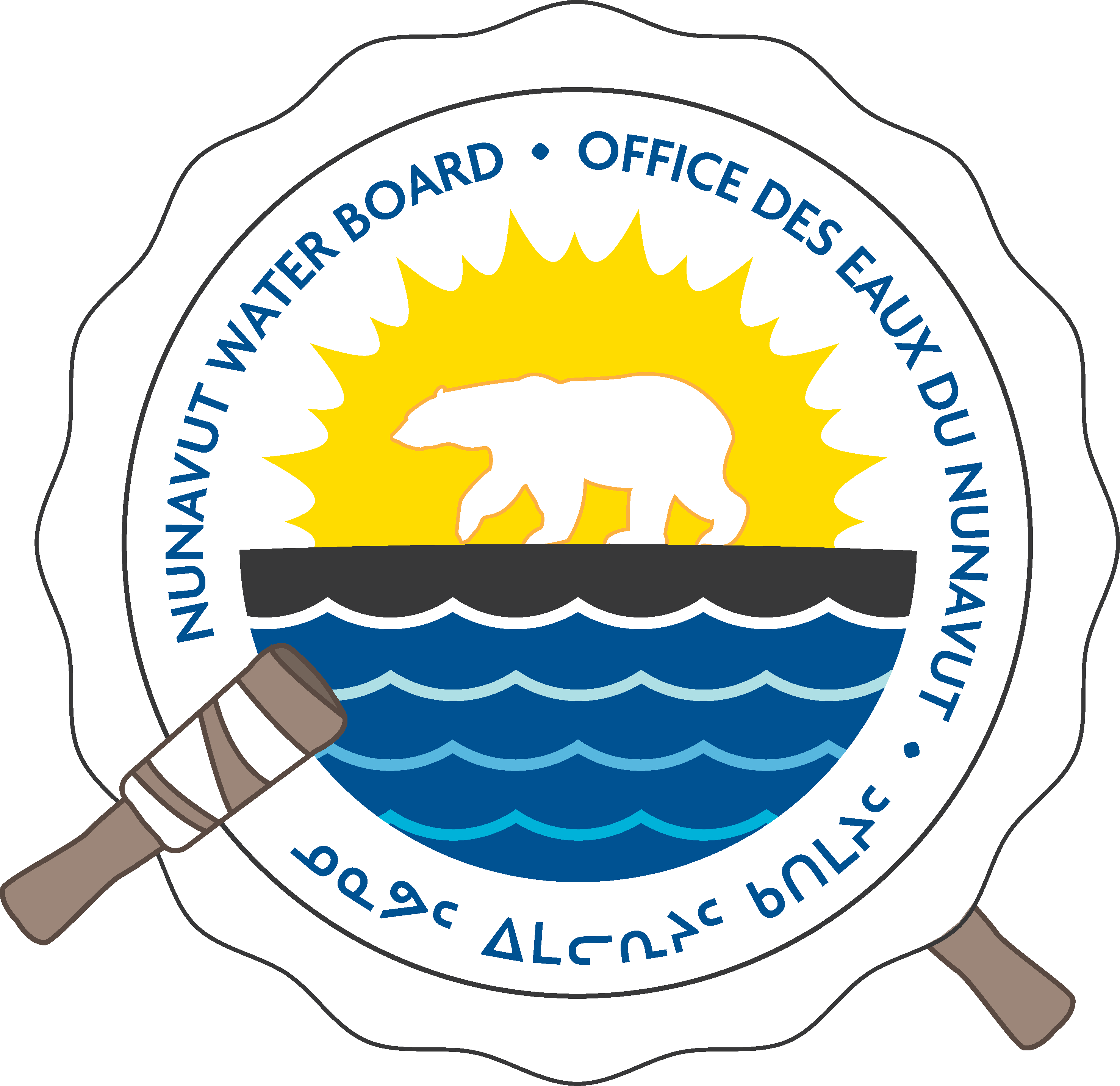Role and Jurisdiction
The Nunavut Water Board’s primary function is to license uses of water and deposits of waste.
The Board is required, in the exercising of that licensing power, to consider any detrimental effects of the potential use of waters or a deposit of waste on other water users and to hold, where appropriate, public hearings. It has responsibilities and powers over the use, management and regulation of inland water in Nunavut and its mandate is to provide for the conservation and utilization of waters in Nunavut – except in national parks – in a manner that will provide the optimum benefits for the residents of Nunavut in particular and Canadians in general.
To accomplish this, the NWB uses methodologies from hydrology and hydrogeology, among other scientific disciplines, and balances the requests made in the application, against the relevant legislation and laws regarding inland surface and ground water.
The NWB operates at arm's length from government and other parties and is part of a larger management regime constituted of other Institutions of Public Government, including the Nunavut Surface Rights Tribunal, the Nunavut Impact Review Board and the Nunavut Planning Commission, as well as other land and resource management bodies like the Nunavut Wildlife Management Board, Regional Wildlife Organizations, and local Hunters and Trappers Organizations. In particular, the NWB is required to cooperate with the Nunavut Planning Commission to develop land use plans that affect water, and with the Nunavut Impact Review Board to assess environmental and socio-economic impacts of water-related project proposals.

